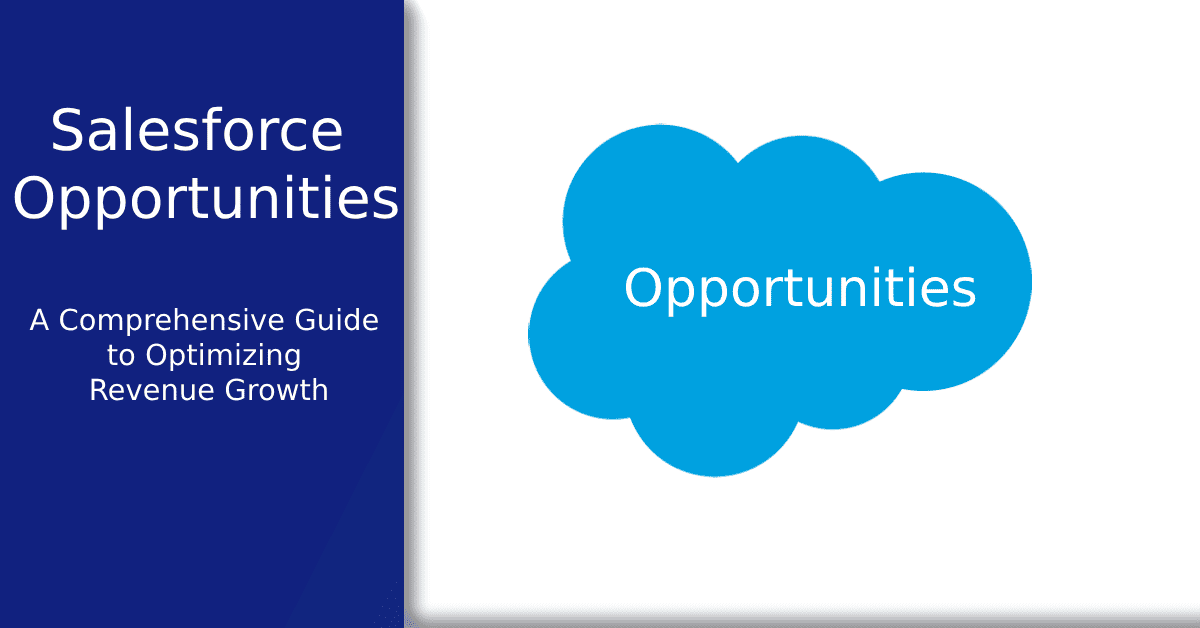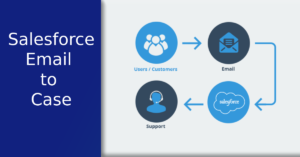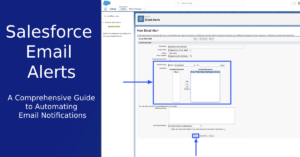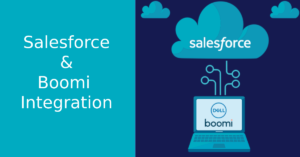
What are Salesforce Opportunities? Salesforce opportunities are potential deals or sales prospects that can be tracked, managed, and analyzed within the Salesforce CRM system.
Welcome to our comprehensive guide on Salesforce opportunities and how they can be leveraged to drive successful sales strategies and revenue growth.
In this article, we will explore the importance of Salesforce opportunities in maximizing sales potential and converting leads into customers.
By understanding the fundamentals of Salesforce opportunities and implementing effective strategies, businesses can optimize their sales processes and achieve greater success.
Skip around if you want.
What Are Salesforce Opportunities?
Salesforce opportunities represent potential deals or sales that can be won by a business. They provide a structured framework within the Salesforce platform to track and manage sales opportunities throughout the entire sales lifecycle. Salesforce opportunities allow businesses to capture critical information about potential deals, assess their value, and progress them towards closure. By effectively managing opportunities, businesses can increase their win rates and drive revenue growth.
Key Elements of Salesforce Opportunities
To optimize revenue generation with Salesforce, it is important to understand the key elements associated with Salesforce opportunities. These elements include:
Deal Information: Salesforce opportunities allow businesses to capture essential details about a deal, such as the opportunity name, amount, expected close date, and related products or services. This information provides visibility into the sales pipeline and helps sales teams prioritize and focus their efforts on high-value opportunities.
Opportunity Stage: The opportunity stage represents the current position of an opportunity within the sales process. It indicates the progress made and helps sales teams assess the likelihood of winning the deal. By accurately tracking the opportunity stage, businesses can identify potential bottlenecks, forecast revenue, and take appropriate actions to move opportunities forward.
Sales Team Collaboration: Salesforce opportunities facilitate collaboration among sales teams by allowing multiple team members to contribute to an opportunity. Sales representatives can share information, update the opportunity status, and collaborate on strategies to increase the chances of success. This collaboration enhances teamwork, improves communication, and strengthens the overall sales effort.
Competitor Tracking: Salesforce opportunities enable businesses to track competitors involved in a deal. By identifying competitors and monitoring their activities, businesses can develop effective strategies to differentiate themselves and position their offerings favorably. This competitive intelligence helps sales teams understand the competitive landscape and make informed decisions to increase their win rates.
Leveraging Salesforce Opportunity Management Tools
Salesforce offers a range of tools and features designed to enhance opportunity management and drive revenue growth. By leveraging these tools, businesses can optimize their sales processes and increase their chances of success. Let’s explore some key components that can be leveraged to maximize the potential of Salesforce opportunities:
Opportunity Pipeline View: Salesforce provides a visual representation of the opportunity pipeline, allowing sales teams to see the distribution of opportunities across different stages. This view provides valuable insights into the overall health of the sales pipeline, identifies potential gaps or bottlenecks, and enables proactive sales management.
Sales Forecasting: Salesforce’s forecasting capabilities enable businesses to project future revenue based on the opportunities in the pipeline. By analyzing historical data, opportunity stages, and close probabilities, businesses can generate accurate forecasts, set realistic revenue targets, and make informed business decisions.
Automated Reminders and Notifications: Salesforce allows businesses to set up automated reminders and notifications for key activities and milestones within opportunities. Sales representatives can receive timely alerts for follow-up actions, meetings, or deal-closing deadlines. These reminders ensure that opportunities are effectively managed and no critical steps are overlooked.
Opportunity Reporting and Analytics: Salesforce offers robust reporting and analytics features that provide deep insights into opportunity performance. Businesses can analyze win rates, conversion rates, sales cycle times, and other key metrics to identify areas for improvement, optimize sales strategies, and drive revenue growth.
Optimizing the Opportunity Management Process
By leveraging Salesforce’s opportunity management capabilities, businesses can optimize their sales processes in several ways:
Strategic Deal Qualification: Use Salesforce’s opportunity management tools to assess the quality and potential of each opportunity. Qualify opportunities based on predefined criteria such as budget, authority, need, and timeline (BANT). This qualification process helps sales teams focus on opportunities with higher chances of success and avoid wasting resources on unlikely deals.
Effective Opportunity Tracking: Regularly update and track opportunities within Salesforce. Ensure that the opportunity stage accurately reflects the progress made and any changes in the deal. By maintaining accurate and up-to-date information, businesses can make data-driven decisions, identify stalled opportunities, and take appropriate actions to move them forward.
Collaborative Sales Processes: Encourage collaboration among sales teams within Salesforce opportunities. Foster communication, information sharing, and teamwork to leverage the collective knowledge and expertise of the team. By working together, sales representatives can address customer needs more effectively, overcome challenges, and increase the likelihood of closing deals.
Continuous Sales Training and Development: Utilize Salesforce’s opportunity management tools to identify areas for sales training and development. Analyze sales performance metrics and identify patterns or gaps in skills or knowledge. Use this information to design targeted training programs that address specific needs and empower sales teams to succeed.
Benefits of Salesforce Opportunities
Utilizing Salesforce opportunities offers a range of benefits for businesses. Let’s explore some of the key advantages:
Improved Sales Pipeline Visibility: Salesforce opportunities provide a clear and comprehensive view of the sales pipeline, allowing businesses to identify potential bottlenecks, allocate resources effectively, and optimize sales strategies. This visibility enables proactive sales management and enhances decision-making.
Accurate Sales Forecasting: By leveraging Salesforce’s forecasting capabilities, businesses can generate accurate revenue forecasts. This helps with resource planning, budgeting, and setting realistic targets. Accurate forecasting also improves communication with stakeholders and enhances overall business planning.
Enhanced Sales Team Collaboration: Salesforce opportunities facilitate collaboration among sales team members. By providing a centralized platform for information sharing, updates, and collaboration, businesses can foster teamwork, improve communication, and increase the chances of success.
Data-Driven Sales Strategies: Salesforce opportunities enable businesses to analyze key metrics and performance indicators, such as win rates, conversion rates, and deal sizes. This data-driven approach helps businesses identify strengths and weaknesses, optimize sales strategies, and make informed decisions to drive revenue growth.
By leveraging Salesforce opportunities, businesses can optimize their sales processes, improve pipeline visibility, enhance forecasting accuracy, foster collaboration among sales teams, and drive revenue growth.
Strategies for Optimizing Revenue Generation with Salesforce
Optimizing revenue generation with Salesforce involves implementing effective strategies. Here are some key approaches businesses can take:
Targeted Opportunity Segmentation: Segment opportunities based on criteria such as industry, deal size, or customer preferences. This allows businesses to tailor their sales strategies, messaging, and offerings to specific segments, increasing the chances of success.
Opportunity Scoring: Implement opportunity scoring to prioritize follow-up actions and allocate resources effectively. Assign scores based on factors such as deal value, customer engagement, or strategic importance. This helps sales teams focus on high-potential opportunities and optimize their efforts.
Integration with Sales and Marketing Tools: Integrate Salesforce with other sales and marketing tools to streamline processes and improve efficiency. Sync data, insights, and activities across platforms to gain a holistic view of opportunities and execute targeted campaigns more effectively.
Automation and Workflow Optimization: Leverage automation and workflow capabilities within Salesforce to streamline sales processes and improve efficiency. Automate repetitive tasks, such as updating opportunity stages or sending follow-up emails, to save time and ensure consistency. Optimize workflows to align with your specific sales processes and requirements.
By implementing these strategies, businesses can optimize revenue generation with Salesforce. Targeted opportunity segmentation, opportunity scoring, integration with sales and marketing tools, and automation workflows contribute to focused sales efforts, efficient resource allocation, streamlined processes, and increased revenue generation. Salesforce empowers businesses to drive effective revenue generation and achieve their sales objectives.
Overcoming Common Challenges in Revenue Generation
Implementing revenue generation strategies with Salesforce can present challenges for businesses. However, by adopting certain strategies, these challenges can be overcome. Here are some effective approaches:
Effective Data Management: Maintain clean and reliable data within Salesforce. Regularly review and update opportunity information, eliminate duplicates, and ensure data accuracy. This improves the reliability of reports and forecasts and enhances decision-making.
Sales and Marketing Alignment: Foster collaboration and alignment between sales and marketing teams within Salesforce. Encourage regular meetings, shared goals, and joint planning to ensure a cohesive approach. By working together, sales and marketing can optimize lead handoff processes, align messaging, and enhance overall revenue generation effectiveness.
Continuous Sales Process Optimization: Continuously review and optimize sales processes within Salesforce. Identify bottlenecks, analyze conversion rates, and streamline workflows to improve efficiency. Regularly assess the effectiveness of sales strategies and adjust approaches based on data-driven insights.
Training and Enablement: Invest in ongoing training and enablement programs for sales teams. Ensure they have the necessary skills and knowledge to effectively leverage Salesforce opportunities. Provide regular updates on new features, best practices, and industry trends to empower sales representatives to excel.
By implementing these strategies, businesses can overcome common challenges in revenue generation with Salesforce. Effective data management, sales and marketing alignment, continuous process optimization, and training and enablement contribute to improved data quality, aligned efforts, streamlined processes, and increased revenue generation effectiveness. Salesforce’s robust platform provides the necessary tools and functionalities to address these challenges and drive successful revenue generation outcomes.
Conclusion
In conclusion, Salesforce opportunities play a crucial role in optimizing revenue generation strategies. By understanding the fundamentals of Salesforce opportunities, implementing effective sales strategies, and leveraging Salesforce’s powerful tools and features, businesses can optimize their revenue generation efforts and drive business growth.
Continue Learning
Embrace the journey of continuous learning and open the doors to endless growth, new opportunities, and the realization of your full potential. Start today and keep expanding your knowledge to pave the way for a brighter future.
Learn with Justin Pena the Salesforce Consultant
Don’t stop learning about Salesforce, checkout my other 2023 Salesforce Comprehensive Guides on various topics.
Learn from Trailhead Resources
If you are interested in getting hands-on experience, I recommend checking out the Salesforce Trailhead module on Opportunities. It provides interactive tutorials and exercises to help you further enhance your understanding and skills in managing Salesforce opportunities.
FAQs
What is an Opportunity in Salesforce in simple words?
Opportunity in Salesforce refers to a potential sale or deal with a qualified lead, representing a chance to generate revenue.
What is the difference between prospects and opportunities?
Prospects are potential customers in the early stage of the sales process, while opportunities are qualified prospects being actively pursued for conversion into paying customers.
Read my full article on Leads.
What is the difference between orders and opportunities in Salesforce?
Orders represent confirmed sales transactions, while opportunities are potential sales that are actively pursued and not yet closed.
What are the stages of opportunity in Salesforce?
The stages of opportunity in Salesforce typically include Qualification, Needs Analysis, Proposal, Negotiation, and Closed/Won.



